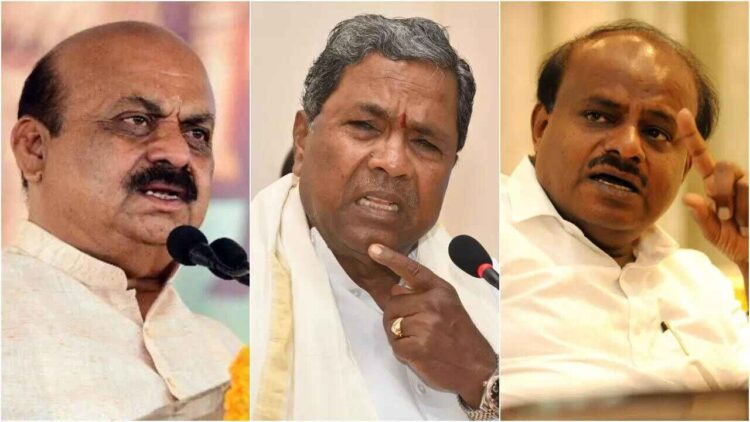“Anyway defeat has to be accepted. There should be no attempt to explain it away. However, the whole campaign should be closely analysed so that the pitfalls may be avoided in future”—Pandit Deendayal Upadhyaya, Organiser Weekly, Political Diary, June 3, 1963
The result of the Karnataka Assembly elections has surprised many, though they are not shocking. There would be diverse opinions to analyse the results and possible impact. Though extrapolating the outcome in favour of the Congress party to the General Elections 2024 is a daring proposition, it definitely would boost the morale of the opposition in general and the Congress party in particular. Beyond the outcome, there are a few points for the political parties and ordinary voters to ponder.
For the Bharatiya Janata Party (BJP), it is the right time to take stock of the situation. Without strong leadership and effective delivery at the regional level, Prime Minister Modi’s charisma and Hindutva as an ideological glue would not be sufficient. The positive factors, Hindutva ideology and PM Modi’s leadership, are genuine assets for the BJP when the State-level governance is effective. First time since Prime Minister Modi took the reins at the Centre, the BJP had to defend the corruption charges in an assembly election. The ruling party tried its best to galvanise the voters with national-level programmes, while the Congress tried its best to keep it at the local level. The BJP failed to significantly add to the previous vote share in the high-turnout elections, resulting in poor seat conversion. Anti-incumbency against the sitting Ministers should be a concerning factor for the BJP.
At the same time, Congress tends to gain when the role of national-level leadership is minimal and the election campaign is kept it at the local level. The family-run party tried to present a unified face at the State level and garnered five per cent additional votes compared to the 2018 elections. Janata Dal (Secular) has lost its sheen and, therefore, the bargaining power after the results. Only time will tell how far Congress could give a stable Government and fulfil the tall promises made to the people. If the Congress infighting and confusion continue, as happened in Rajasthan and choose to get into confrontationist politics with the Union Government, the people of Karnataka would face the brunt. A critical question is also what will happen to ambitious projects like the semiconductor corridor, the key to the long-term technological AatmaNirbharta.
The way caste-based mobilisation is blatantly used and discussed in a State like Karnataka, which is considered to be an Information Technology hub and developed region, is disturbing. Linguistic and religious identities’ role in garnering votes was also open without considering the long-term repercussions. How Muslim leaders put forth their demands to the Congress leadership against the consolidated votes and the Church brazenly came out about their institutional role in the Congress’ victory are rather scary. Regionalism and sub-regionalism have been a growing trend, and the Karnataka elections once again reminded of the dangers of linguistic reorganisation Dr Ambedkar had warned about. The way some people have immediately jumped in to play the North vs South card on the voting pattern is another dangerous ploy we should watch and address.
The Congress victory in Karnataka will certainly defuse the opposition narrative of democracy in danger. In a democracy, electoral outcomes should be seen as a mandate and utilised to read the people’s minds. Both political parties can learn their respective lessons from this verdict and make their assessments for the future. It is also an opportunity to raise questions for the voters to introspect on their voting behaviour. While approaching the General Elections 2024, with few Assembly elections in between, there may be more bitterness in the campaign. Neither the political parties nor the voters or social groups should be allowed to use the election process or outcomes to target national unity and integrity and give the meddling licence to the external powers in our internal affairs. Media, social and intellectual leadership, along with the political parties, have a vital role to play in this regard.


















Comments